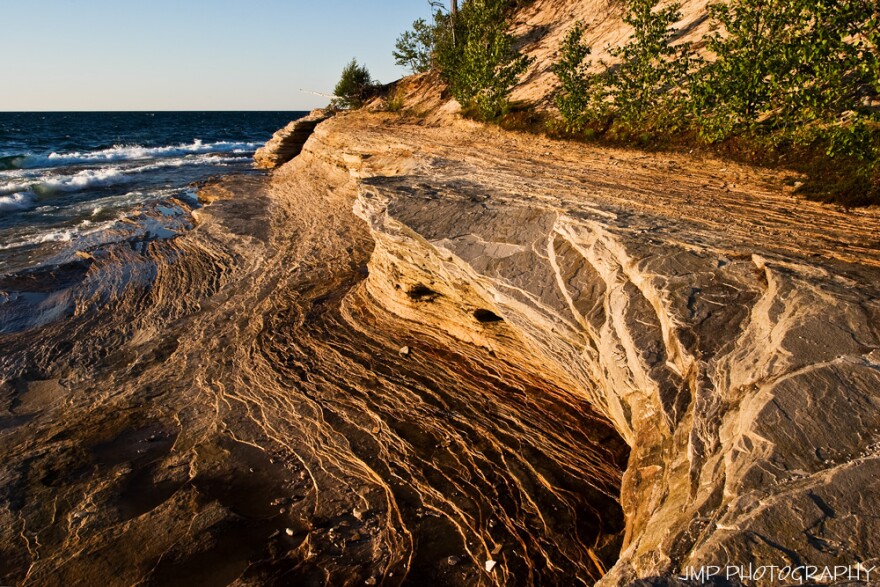Now that Congress has moved on to the next crisis, it’s time to tell our stories and to mop up the remains of the 2013 government shutdown.
A year ago, a friend and I planned a camping, kayaking, and hiking trip to Pictured Rocks National Lakeshore. That’s Pictured Rocks as in National Lakeshore. As the shutdown grew closer, certain that the catfight over Obamacare would never force the closure of our public parks, we planned our vacation.
Surely, someone with gravitas would point out that the national parks belong to the people and with that in mind, perhaps it might not be in the best interests of elected officials to close our playgrounds. Or they might consider loss of revenue for local businesses in their district that are located close to the parks.
We know how that played out. My friend Denise and I arrived at Pictured Rocks with our camp gear and kayaks on a rainy Saturday. We found the road to Beaver Lake Campground blocked with orange barrels and likewise the entrance to Twelve-Mile Campground. We detoured to the Sunset Resort and spent the first night alongside Lake Superior. As we checked out the following morning the owner said, “Every time the phone rings, it’s another cancelation. The park closure is killing my business.”
In Munising, at the western end of the park, we stopped for bacon and eggs at the Dogpatch. It was strangely empty. “Another victim,” Denise said as she looked around the deserted restaurant. We moved on to the Tourist Office where the person in charge gave us maps and a choice, Widewater Campground or Pete’s.
“You’ll love them,” she said. “You have kayaks. They both border the Indian River.” She neglected to mention that both campgrounds lie within the boundaries of Hiawatha National Forest. We’re foiled again, this time with two locked metal gates. At Pete’s we encountered two non-essential employees working on their own time who told us that if we hiked in the park we could be liable for fines anywhere from $500-$5,000 and, yes, jail time was mentioned.
Our second visit to the Tourist Office led us to a state-run campground, Forest Lake where we stayed for six nights. We avoided the National Park until our last day when we wanted to walk on the beach. Because the shutdown had blocked every road into our park, a stroll alongside Lake Superior would take place inside forbidden territory.
We drove to Twelve-Mile Beach, parked the car outside the barrier in full view of anyone who might care, and walked a mile to the lake. On this perfect, crisp, sunny October day, the park was empty.
Afterwards we stopped at the popular Bear Paw Inn for a beer. We were the lone customers. “We’re hurting,” the woman behind the bar said. “There’s no traffic since the park closed.” When we asked about the hundreds of $1.00 bills tacked on to every available surface, she said, “They’ll be donated to St. Jude’s when I sell this place.” She did a one-eighty and pointed to the back wall. “There’s more than $2,000 on these walls.”
Denise and I each added a bill to the collection. I wrote, “Subvert” in fat black letters on mine and stuck it next to the door.
On the drive back to camp we passed an overlook, barricaded at both ends by two lines of orange cones. “Stop,” I said. “Enough.” I relocated those twelve cones to the grassy area next to the overlook. We stopped at the road into Miner’s Castle where four orange barrels blocked the entrance. I tipped them on their sides, rolled them off the pavement and dumped them in the weeds. We traveled on to Munising where I repeated the barrel roll at the parking lot for Munising Falls.
The final roll took place at the entrance to the official park headquarters where I felt the first frisson of fear after Denise reminded me of the potential $5,000 fine and jail time. I moved quickly, pushed the barrels off the road and dove into the getaway car.
Okay. We were outlaws, but we emancipated our park. After a week, it was time to take a stand, to take action, to subvert.
Lake Effect essayist Cari Carlson is a freelance writer, outdoor guide in the west and overseas, and a former environmental educator. She lives in Milwaukee.







